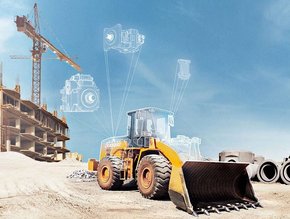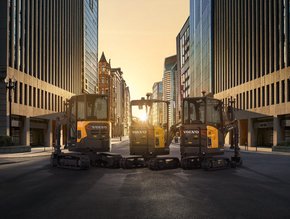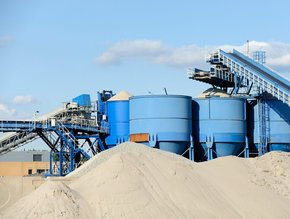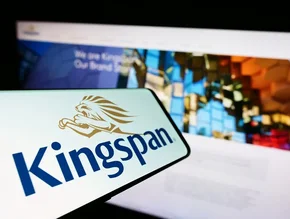Five ways construction companies can reach their CSR goals
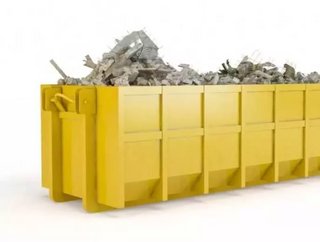
The construction industry has evolved considerably in the past ten years or so, with companies coming under increasing pressure to significantly reduce their carbon footprints.
We all know that the building sector uses a lot of energy. In fact, according to the UK Green Building Council, citing figures from Plain English Guide - Constructing Excellence, fossil fuel-derived energy used in the construction and operation of buildings accounts for around half of the UK’s CO2 emissions.
Thankfully it seems that building specialists are taking their corporate social responsibility (CSR) increasingly seriously. Contractors not only have an obligation to introduce new technology that makes their new structures more eco-friendly in the long run, they must also assess how they can hone their own building processes to ensure they have less impact on the environment.
Here are five methods that they’re currently using.
Eco-friendly cranes
Cranes are the lifeblood of most construction projects, especially larger ones.
More companies are using electric cranes that do not require hydraulic oil and do not run all the time, thus making them more eco-friendly. The latter is an important consideration.
Not so long ago, you’d see curtain wall contractors using diesel-powered monorails or cranes to lift heavy sheets of glass from the ground, slotting them into pre-set brackets around the building. More often than not, companies would start the monorail in the morning and then leave it running all day, even when it was not being used.
Working practices are changing and more eco-friendly electric cranes and monorails are now being used.
Green fleets
Larger construction firms will have a fleet of vans, allowing their workers to travel between different jobs around the UK. It’s important to ensure these vehicles are as green as possible.
A recent study by the Department for Transport showed that attitudes towards green vans are still very poor, with just five percent of people polled claiming that they’ve thought about purchasing an electric car or van.
There’s still a long way to go before vehicle manufacturers mass produce an electric van that construction companies will snap up in their droves, but in the meantime it’s important that builders swap their gas-guzzling vehicles for greener models.
Welfare facilities
Construction companies are required by law to provide adequate welfare facilities for their own staff and sub-contractors working on one of their sites.
The Health and Safety Executive has been conducting nationwide campaigns to ensure ongoing projects are up to standard, with some businesses found to be in breach of these regulations. It may be tempting to provide a washroom, shower facilities and rest area that meet the minimum requirements, but this will do nothing to help you achieve your CSR goals.
Manufacturers are now producing green welfare units that are more economical to run. They typically contain LED lighting, more sophisticated heating systems and advanced generator charging technology. If you’re serious about saving money and improving your CSR credentials, these are certainly a shrewd purchase.
Waste management
Around 10 million tonnes of construction products and materials are wasted every year, costing in the region of £1.5 billion. Clearly, this cannot continue.
As part of your CSR policy, you should set wastage targets and then endeavour to stick to these. Are you throwing away materials that could be used on another of your sites, for example?
The government enforced Site Waste Management Plans (SWMP) in 2008 for projects costing in excess of £300,000 and these are designed to encourage construction companies to identify potential cost savings and energy reduction measures.
Streamlined processes
It’s important that you constantly review your working processes for a number of reasons. Firstly, and most importantly, you need to ensure the practices you adopt offer maximum protection to your own staff and those who are contracted in to complete jobs.
Secondly, you should assess whether your methods are efficient. Lean manufacturing helped a lot of businesses to survive the recession and the process of streamlining tasks can easily be applied to the construction industry. If a steel erecting company has worked out that by hiring just one or two more staff members, they will be able to use a new lifting process that will enable them to do the job 30 percent quicker and more ethically, it’s certainly worth the extra expenditure on wages.
Phil Foster is the CEO of Love Energy Savings, a business energy comparison specialist that works with a multitude of construction companies across the UK.


